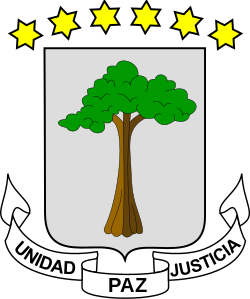| | |||||||||||||||||
| |||||||||||||||||
All 100 seats in the Chamber of Deputies 51 seats needed for a majority | |||||||||||||||||
This lists parties that won seats. See the complete results below. | |||||||||||||||||
55 of 70 seats in the Senate 28 seats needed for a majority | |||||||||||||||||
This lists parties that won seats. See the complete results below.
| |||||||||||||||||
 |
|---|
Parliamentary elections were held in Equatorial Guinea on 26 May 2013, alongside local elections. Following constitutional reforms approved in a 2011 referendum, they were the first elections in which the newly established Senate was elected. [1] The ruling Democratic Party of Equatorial Guinea won all but one seat in both houses of Parliament.

